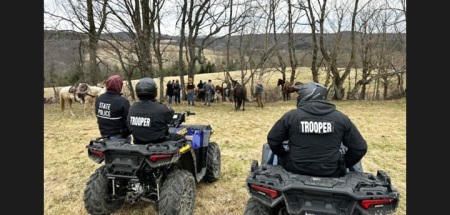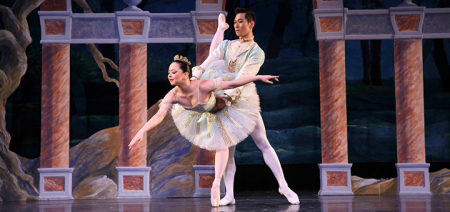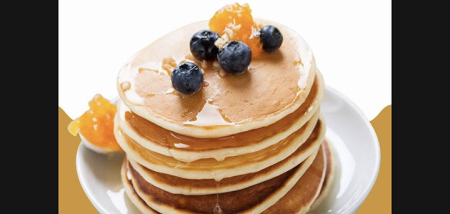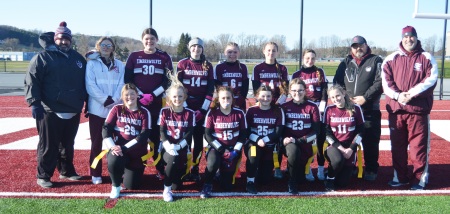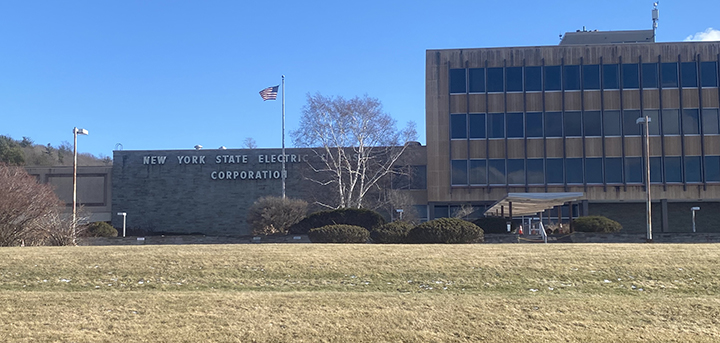Tilting At Windmills: A Wordsmith Stands In Awe Of Spring
Published:
May 13th, 2022
By:
Shelly Reuben

In Honor of the Season – and the Merry Month of May – I am bringing back a favorite column from many years ago.
I was lying in my bed this morning, more accustomed to the distant din of traffic than anything that would set my heart aflutter (I know. People don’t say “aflutter” in the real world, but excesses have to be allowed in the spring) when I heard a series of loud, melodic sounds outside my window.
Still floating in the netherworld between wakefulness and sleep, all that my mind could register was one word: Warble. Over and over again. Warble. Warble. Warble. My eyes popped open. Suddenly, it dawned on me. “That’s a bird!”
Then, a big smile suffused (another elaborate spring word) my face, and I thought, “A bird is warbling. The sound it is making literally is a warble. A few hundred years ago, someone strolling through a forest heard that birdsong and strung together a perfect sequence of syllables to describe it.”
Warble. Brilliant. Which got me thinking in general about people, words, and spring.
There is a chickadee at my birdfeeder this very ... I was going to say “moment,” but it just caught my eye and indignantly flew away. If a conspiracy of circumstances had forced me to come up with a name for that irate avian, with my flat-footed imagination, I would probably have called it, “little black and white bird.”
Which conveys nothing of its perky prettiness or its rapid mid-air reversals when it decides to go thither instead of yon (Alas. Spring has hypnotized me into thinking that I’m a Victorian novelist).
“Chickadee,” however, like “warble,” is a perfect word. And that sweet little aviatrix outside my window ... yes. She’s come back. She sounds like a chickadee should sound, and she looks like a chickadee should look.
Amazing! Which nimble minded naturalist thought it up?
Was it a farmer with the soul of a poet? A housewife as she gazed out the window over her kitchen sink? A keen-eyed hiker with knobby knees and a lyrical heart? A hobo? A biologist? A birdwatcher? A child?
Words, particularly those that describe nature, are not only suggestive. Often they are accurate as well. Think of “goose.” A goose sounds and looks like ... well, a goose. It’s a plump and squashy fellow that one can well imagine surrounded by glazed carrots and drowning in fat.
Let’s consider other suggestive appellations. First, the ugly ones:
Turkey. A guttural utterance that aptly describes an unimaginably unattractive (if savory) fowl.
Crow. A nasty biped accurately cast to play the villain in Alfred Hitchcock’s movie, The Birds.
Raven. As dark and menacing as the ceaseless tapping, tapping outside Edgar Allan Poe’s chamber door in the poem of the same name.
Vulture. Need I say more?
Now, we come to the beauties. Beautiful to our eyes and evocative to our ears.
Barn Swallow: Graceful, sleek, and inclined to good-natured chitchat.
Tufted Titmouse: Adorable! He even has a little pointed tuft of feathers on his little pointed head.
Bobolink: Tiny fellow who sings a joyously burbling song.
Nor should we forget the nightingale, whose melancholy voice has inspired so many eloquent tributes. Hans Christian Anderson penned, “As the nightingale sang…even death listened’.” And lyricists during World War II expressed both loss and longing when they wrote, “A Nightingale Sang in Berkeley Square.”
A simple blue bird inspired yet more wistful lyrics; bands played and soldiers sang, “There’ll be blue birds over the white cliffs of Dover, tomorrow when the world is free.”
Which brings us to the second stanza of Percy Bysshe Shelley’s poem:
“To a Skylark.”
Higher still and higher
From the earth thou springest,
Like a cloud of fire;
The blue deep thou wingest,
And singing still dost soar, and soaring ever singest.”
It is spring. Time to dig holes in the ground and plant seeds. Time to pause for a moment, lean against one’s rake, look up in the sky, and observe the ecstatic return of these incredible winged creatures: The mockingbird; the scarlet tanager; the kiskadee; the sparrow; the cardinal; the goldfinch; the robin; the wren; the yellow-rumped (isn’t that great?) warbler ... the meadow lark.
Beautiful birds. Wonderful words.
Hey guys. Good to have you back.
Copyright © Shelly Reuben, 2022. Shelly Reuben’s books have been nominated for Edgar, Prometheus, and Falcon awards. For more about her writing, visit www.shellyreuben.com
Author: Shelly Reuben - More From This Author
Comments
